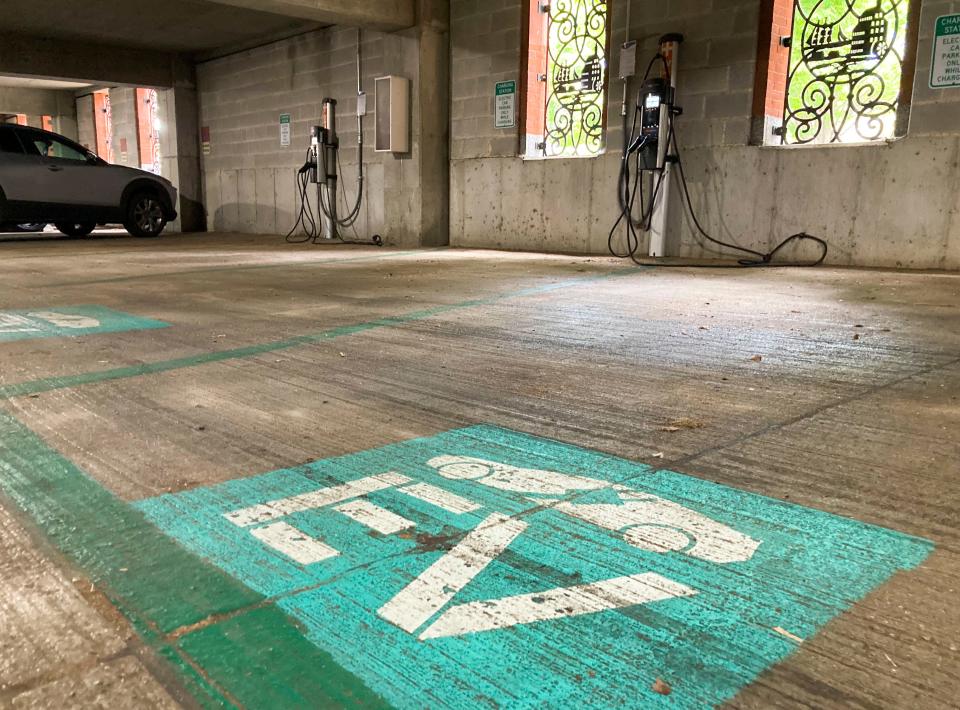Is Delaware really ready for the cost of electric vehicles. Let's be honest: No
Delawareans pay the country's sixth-highest monthly residential electric bills, nearly 20% higher than the national average. CNBC also recently declared Delaware as one of the states in America that is "least prepared for extreme weather."
Undoubtedly, our world and Delaware are carefully considering our energy, including how it is produced and consumed. Still, we must take a prudent and practical approach to this transition for the state's consumers. For example, is it prudent to move aggressively toward all-electric mandates, including electric vehicles, at the risk of increasing our energy prices even more and making power less reliable?
The reality is that cities across the nation and in Delaware need substantial infrastructure investment in the EV charging network, and the electric generation, transmission and distribution systems must be significantly improved before moderate or widespread EV adoption can occur. Banning gasoline and diesel-powered vehicles and mandating consumers purchase EVs before the state has the requisite infrastructure needed to support this will imperil the electric grid and increase consumer fuel costs. These policies will also disadvantage electric grid reliability and other cost considerations.

Consumer Energy Alliance recently released a report called "Freedom to Fuel," which lays out the policy questions that Delaware lawmakers should tackle before mandating what might not be feasible. From realistic adoption timeframes and the actual cost for consumers to the electric generation requirements and transmission investments, the report begs the question — has enough been considered to make these transitions a reality?
Case in point, at a recent meeting for regulatory commissioners, many expressed uncertainties on how to manage the costs of electric vehicle supply equipment and related distribution system costs stating that there wasn't "enough external funding," "the costs that will fall on rate-payers (consumers) is going to be enormous," and, "how do we spread upgrade costs equitably without charging people who don't yet own EV's?"
These are all good questions.
As the Federal Reserve continues to raise interest rates, the cost of goods increases, and as household budgets shrink, who will foot the bill for these infrastructure upgrades if they fail to occur before people are forced to buy electric vehicles? Compounding that concern is the fact that the cost of EVs are often beyond the financial reach or many of us. By hastily moving to mandate EVs without addressing these questions would be a disservice to our communities and those most vulnerable to price spikes.
In our highly politicized political climate, we tend to forget about the progress we've made using fuels like natural gas and increasing efficiency in the energy system. During the last decade, as action on climate and the environment has migrated from the federal level to the state level, the automotive sector has found itself the subject of new regulations that could shake up the industry, and American vehicle choice, as never before.
Climate change: This bipartisan bill will account for industrial carbon emissions — and help Delaware
Where once there were incremental increases in Corporate Average Fuel Economy standards at the federal level that primarily impacted the automotive industry, we now have EV mandates in place in several states and more under consideration that will directly affect how consumers live and drive. Sadly, many of these mandates have been handed down without adequate cost-benefit or market impact analyses, so we should demand our policymakers consider them.
As elected officials, they must do good for their communities, which means not only environmentally but economically.
Mike Butler is mid-Atlantic regional director for Consumer Energy Alliance.
This article originally appeared on Asbury Park Press: Delaware EV policy: Can taxpayers afford it?

